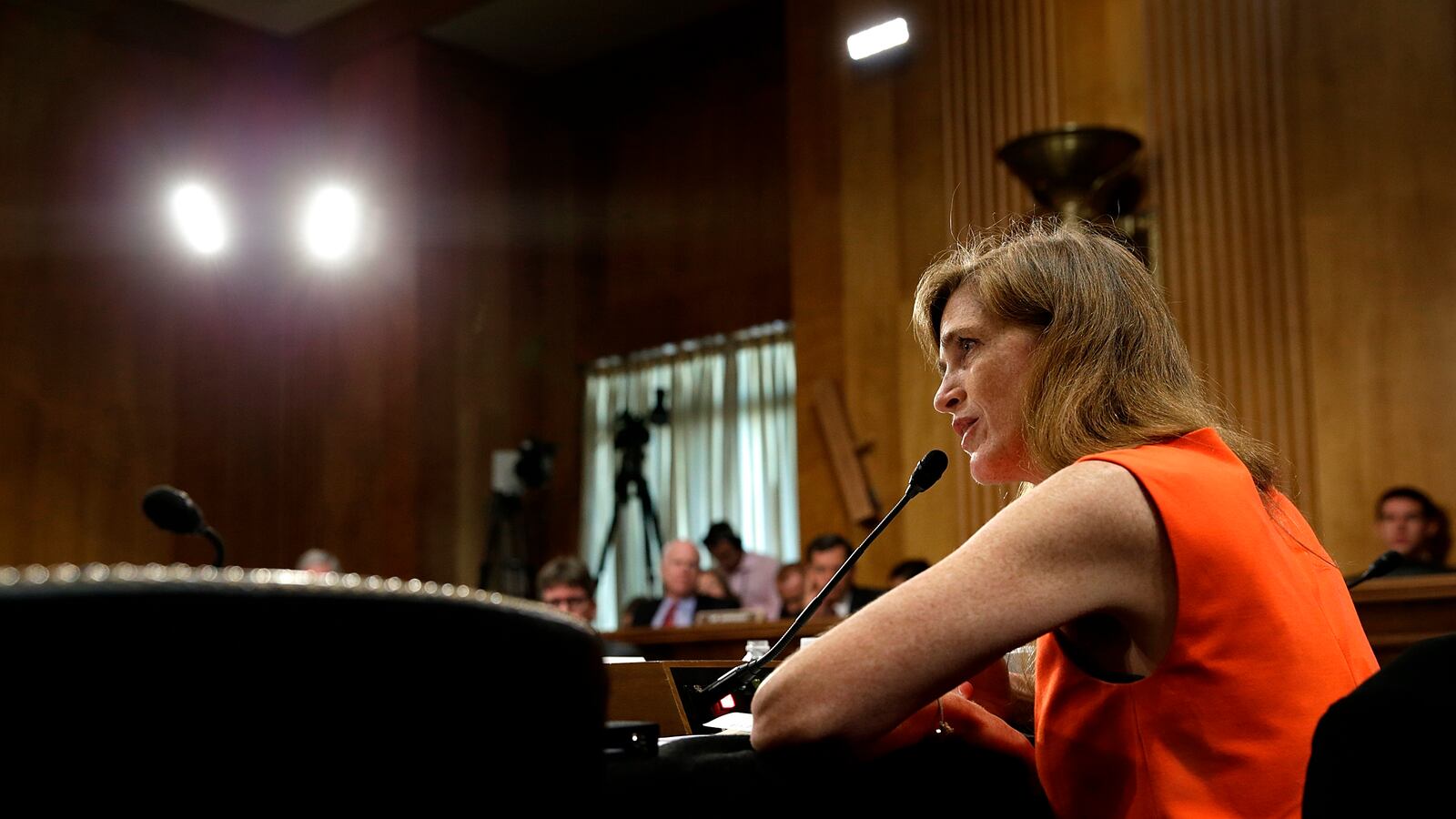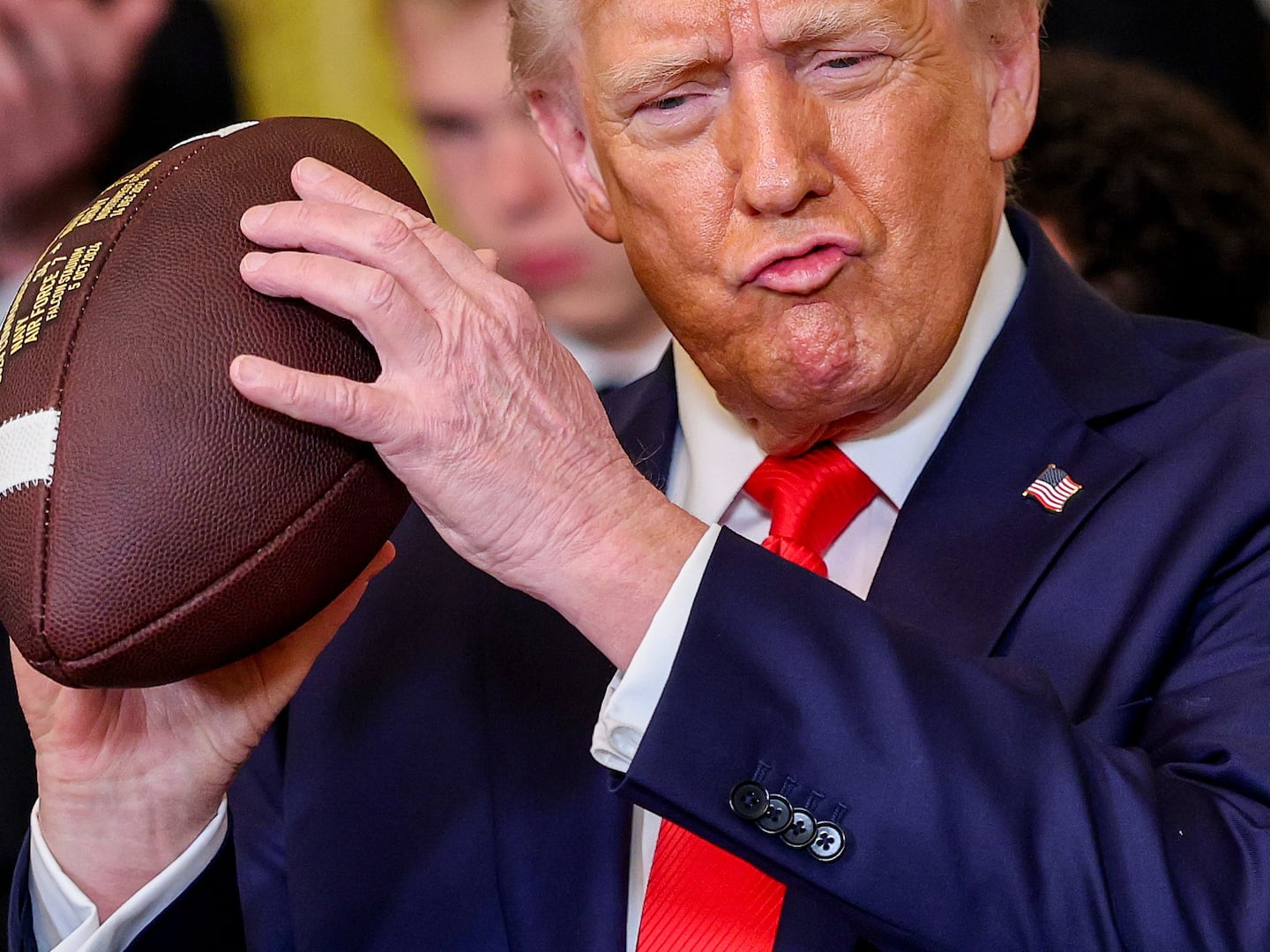The U.S. Senate just held its confirmation hearing on Samantha Power’s nomination for Ambassador to the United Nations. Despite some (relatively) muted opposition among smaller right-wing Jewish groups, conservatives, and some Republicans who criticize most of the Obama Administration’s foreign policy thinking anyway, it’s been clear for some time that her confirmation would be smooth sailing compared to the storms Chuck Hagel had to endure. Contrary to concerns of many about what she might do to Israel if confirmed, her handling of the hearings is an indication of the appropriate seriousness with which she would approach U.S. relations with Israel, too.

Much of the opposition to Power’s nomination focused on interviews given or earlier articles she wrote in which she seemed to be more critical of Israel than the Palestinians, and criticized American foreign policy for not recognizing its own moral and policy failings. The libertarian wing of the Republican party was unhappy with her desire for America to become more involved in both the United Nations and in the world.
During the hearing she defused most of these concerns, directly and intelligently answering the friendlier questions from Democrats and displaying a close grasp of the details of particular conditions or future scenarios asked about (or noting when she had to that she simply didn’t know enough to comment yet). To Republican questions she answered forthrightly, in a refreshingly honest manner that her thinking had changed on some of the issues, and that she might not write or say the same things again (“I gave a long, rambling and remarkably incoherent response to a hypothetical question I shouldn’t have answered”).
I don’t know Samantha Power personally, but I’ve followed much of her work; I’ve used her seminal book A Problem from Hell in my university courses. Based on what I’ve read, her performance in the hearing, and everything that’s been written about her passion, sense of moral responsibility, and awareness of the constrains of actual policymaking, I’m not worried she’ll “throw Israel under the bus” (to use Mitt Romney’s favorite term), nor do I think she’ll give up American sovereignty in order to be ruled by the United Nations.It’s also disingenuous to hold someone so closely to the things they wrote in years past, if it was a serious discussion of a public policy issue. It should be obvious that people in government behave differently than outside of it, particularly if the latter are activists or academics; there are new constraints and distinct responsibilities. It should also be obvious that a person’s thinking can change over time.
Power did have to dance a little to the Republican tune on the infallibility of Israel and the presumed moral problem of questioning its policies: In her opening statement about the benefits and problems of the United Nations, she referred to the Holocaust and “unacceptable attacks against the State of Israel” and said the U.S. “has no greater friend in the world than Israel.” (Though she was certainly correct about the U.N.’s consistent and extra efforts to condemn Israel.) When asked how she would handle Palestinian efforts at the U.N. to obtain international recognition for statehood outside of negotiations with Israel, she said the U.S. needs to “deter” such unilateral efforts.
She also tried to avoid a discussion of what America has done wrong. When asked by Marco Rubio about her New Republic piece in which called for “a historical reckoning with crimes committed, sponsored, or permitted by the United States,” she repeated several times that she thinks America is the greatest country in the world and would never apologize for it—without directly explaining what she had in mind. (Fittingly, it began as one of the more poignant moments of her testimony, when she noted that her comments took place in the context of a recent visit to Rwanda and the Clinton Administration’s response—or lack thereof—to the genocide, Clinton’s later apology, and the effect it had on Rwandans.)
Of course people will disagree over the policies she recommends and the manner in which she pursues the Administration’s priorities. She’ll be working on weighty issues that have consequences for Washington’s budgetary health, position at the top of the world hierarchy, and influence in the international system.
But let them be serious differences rather than caricatures of her work or the U.S.’s foreign policy. Anything else is a dangerous distraction and not worthy of someone so committed to making a difference in the world that she’s willing to enter the difficult world of policymaking.
If I were more idealistic, I might even say that the hearings on her nomination might be an example of how to go about this.






